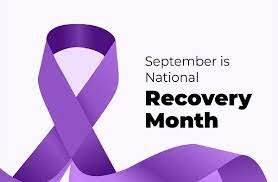The three photos of rapper MC Lyte taken between ages 20 to 54 were posted on Facebook and the most common response by thousands of followers were, "She looks younger at age 54. It’s the melanin in our skin that keeps us looking so young. Black don't crack."
While Black might not crack on the outside, studies by the Center for Disease Control (CDC) suggests that black can crack on the inside and racism is a major culprit! According to the CDC, racism contributes to physical and mental health disparities among African Americans. Racism increases rates of cardiovascular disease, obesity, heart disease, high blood pressure, inflammation, asthma, depression, anxiety disorders, eating disorders, psychosis, other chronic medical conditions, and premature death (CDC 2019 research review).
Substance Use as Medicine
Many African Americans use alcohol and other drugs to cope with racism which produces medical complications of its own, including premature death. Below are other ways of coping and thriving.
Coping and Thriving
Below are ways African Americans have been able to thrive in the midst of racism. While each method may not work for everyone, perhaps you can find what works for you.
Having a tribe to talk with about racism. This can include an inner circle of other African Americans whom you don't feel the need to censor your words. This tribe listens non-judgmentally and you benefit from the me too experience when you talk with them.
Social Activism. Studies by a Harvard sociologist found that tragedies like the murder of George Floyd can impact the mental health of the entire Black community and community activism can serve as a mental health protective factor.
Seek Therapy. Preferably from a culturally responsive therapist. Studies show that African Americans stay in therapy longer when working with Black therapists and they make more progress.
Strengthen Racial Identity. Studies indicate that African Americans who have a positive racial identity are more likely to have greater self-esteem, fewer symptoms of depression and are less likely to internalize racism.
Reading and Writing. Reading books about African Americans who have thrived in the midst of racism can be helpful. Some African Americans have used racism as fuel for greatness and history making! This includes: Harriet Tubman, Frederick Douglass, W.E.B. Dubois, Jackie Robinson, Jessie Owens, Angela Davis, Dr. Martin Luther King Jr., Coretta Scott King, Shirley Chism, Rosa Parks, Malcolm X, President Barack Obama, Michelle Obama. Journaling about your experiences with racism and your methods of coping with it can also be helpful. It you journal enough; your writings could one day become a book which could help others.
Humor. Laughter is good for the soul! Listening to your favorite comedians during racially trying times can be quite helpful.
Creative Outlets. The book My Grandmother’s Hands highlights how racialized trauma lodges itself within black bodies. Somatic experiences such as movement and dance can remove some the trauma from the body. Music from blues to hip-hop has helped African Americans deal with racism and thrive.
Spirituality and Religion. Many African Americans find church fellowship, community, worship, and prayer helpful in coping with a racist society. Others find spiritual practices such as walking in nature, meditation, and mindfulness practices to be quite helpful as well.

